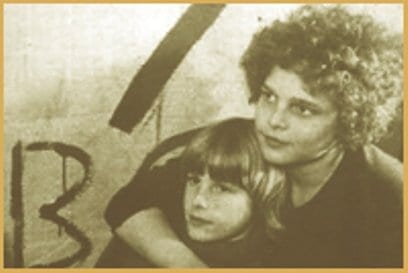The 1978 Danish film You Are Not Alone (Du er ikke alene; in Danish with English subtitles, now out on DVD) is one of those strange historical documents whose ingenuous message of “love others as you love yourself” makes it seem to have come from a different planet entirely.
So earnestly and lustily in love with young teenagers that it would be impossible to make now, You Are Not Alone is set at an all-boys “continuation school,” an “alternative” institution for troubled kids (that perfect Northern European breed of freedom-in-captivity where you are locked up but get to talk about your feelings).
It pits youthful vim and vigour against stodgy old authority in a folksy, naïve style that would be familiar from any kids’ film were it not for the teen nudity and its ethos of 1960s liberation politics.
Twelve-year-old Kim (Peter Bjerg) is the young son of the very strict, crusty headmaster, who attends a different school but spends much of his time under the corrupting spell of his father’s rough and rowdy charges, especially a sensitive 15-year-old, the Shirley Temple-mopped Bo (Anders Agensø).
Directors Lasse Nielsen and Ernst Johansen contrive every situation imaginable to get the students into skimpy underwear. But despite its discomforting obsession with a mythic childhood innocence, the film is an overly romanticized yet impassioned case for the political, social and sexual rights of the young.
In between communal showers and idyllic outdoor bike rides, picnics and body-painting sessions, the mischievous yet articulate kids engage in impassioned debates over the rights of children to vote and experiment with drugs and alcohol, and argue for the harmless pleasures of the porno images they poster on their dorm walls (a source of much heated debate between the headmaster, his largely Marxist teachers and the free-thinking youth).
Their precocious political awareness eventually culminates in a full-on revolt against their principal.
If this sounds impossibly quixotic, there are some nice, natural moments where the boys actually act like typical teenagers, trying to one-up one another’s goriest stories following a compatriot’s swimming injury, for example.
All in all, an outlandish archival novelty that melds a voyeuristic take on pubescent sexuality with earnest and endearingly hippie-dippy radical politicking and the longing glances of dewy-eyed first romance.
And you have the added bonus of experiencing a gender dysphoria time warp, as all the blond Nordic lads are so effeminate even the reactionary anti-Communist bullies look like the women from ABBA.

 Why you can trust Xtra
Why you can trust Xtra


